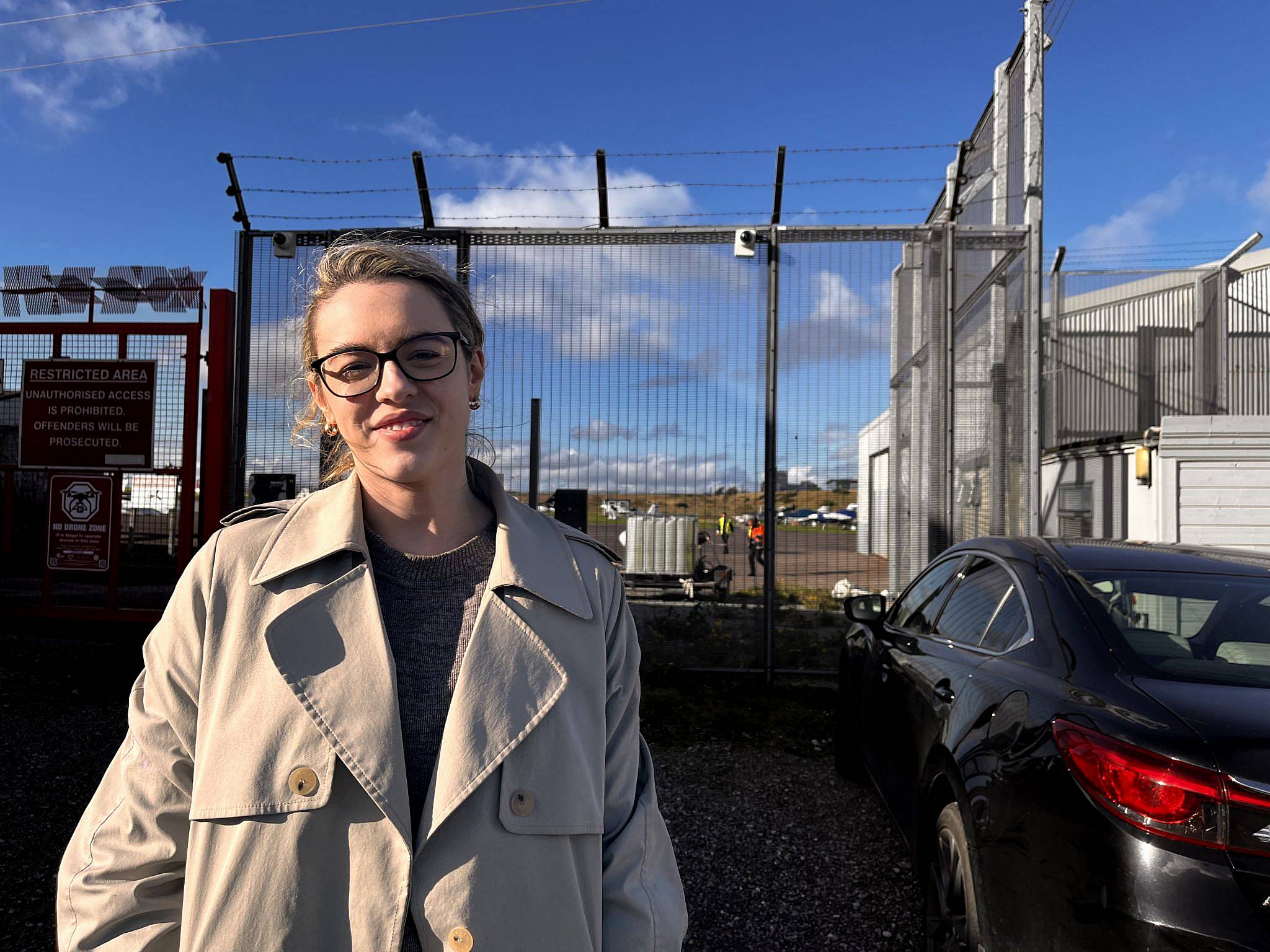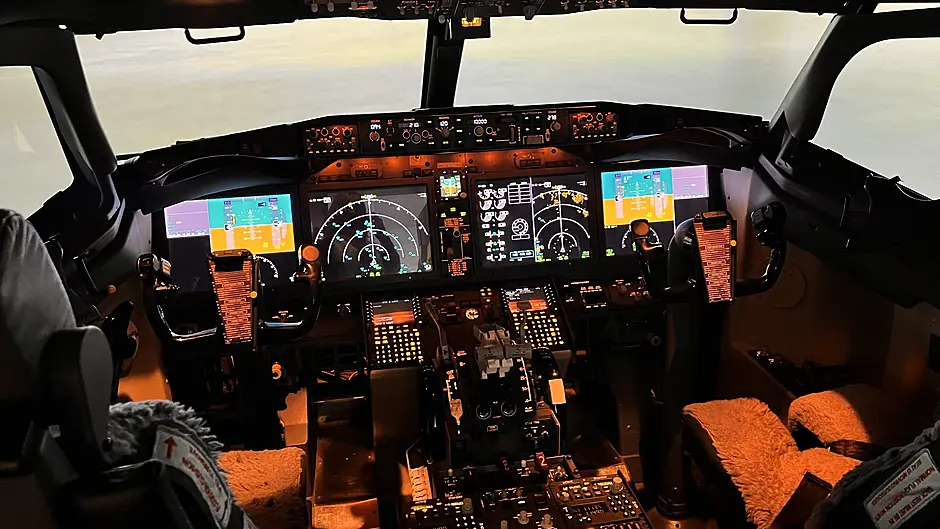Siobhán Cronin recently paid a visit to the little company with the big job – teaching the next generation of the world’s pilots how to fly.
DOWN a little, unremarkable lane off the main Kinsale to Cork road is an Irish company that is making big waves in global aviation.
The Atlantic Flight Training Academy (Afta), located conveniently beside Cork Airport’s main runway, will celebrate 30 years in business next year.
The company, which started off with a ‘fleet’ of one small Cessna aircraft, now has 20 aircraft on its ramp, and employs over 70 staff.
It has a second flight school at Waterford Airport, and marketing manager Jenna Eustace says it’s never been busier, due to a huge demand for new pilots, because of a global shortage.
‘We have over 200 students currently on the course,’ she said, explaining that lectures and flight training are conducted in Cork and Waterford, with an office in Little Island, too, though the Cork Airport headquarters is certainly the hub of the operation.
‘A lot of pilots never came back after Covid, and nobody expected the airline industry to bounce back so quickly, so a lot of people were caught off-guard,’ explains flight instructor Kyle Johnston.
On a beautifully sunny Thursday afternoon at the Ballygarvan base, there is a real ‘buzz’ at the base with staff and students – and small aircraft – constantly coming and going.
The company has invested heavily in the facilities here – a €2m Boeing 737 Max simulator is just a year on-site, but there are smaller simulators here too – each costing about €500,000.
They’re essential tools in the armoury of such training operations – but this is by far the biggest on the island.
 Jenna Eustace, Afta marketing and sales manager
Jenna Eustace, Afta marketing and sales manager
There is also a maintenance hangar, busy stripping down planes and replacing engines. ‘It’s important the students get to see how everything works, and they can come in and talk to any of the engineers at any time and see the planes stripped down, and taken apart, and all the bits and pieces.’
Students start out by learning to fly in one and two-engine small planes and eventually graduate up to the real thing – the Boeing simulator.
It’s an impressive piece of technology, re-creating real life flights into any airport on the planet using Google Earth-type mapping which even allows the instructor to choose day or night environments, and select any type of weather conditions – from slight rain, to thunderstorms or the Cork speciality – fog.
The airport is notoriously for its foggy location but Kyle points out that the conditions in Cork make it perfect to create challenging situations for the pilots to experience – whether in the simulator or in the skies over Ballygarvan.

‘People often ask why we didn’t set up the school somewhere warm – like Florida, when I trained,’ says Kyle, ‘but the Irish weather is ideal for teaching students in all types of weather, so they leave here prepared to meet any condition.’
The Boeing simulator is so realistic that when Kyle ‘parks’ us on the runway to explain some more of the equipment in the cockpit – which was actually a real-life cockpit from a plane in a former life – I immediately get angsty, thinking we are holding up the runway!
And after sitting there for 30 minutes, outside the ‘new terminal’ at Dublin Airport I am almost surprised to open the door on the ‘plane’ and find I am actually in Cork!
‘Yes, it’s very convincing,’ agrees Jenna, showing me the handset and mic the pilots use to talk to the passengers. ‘They can even practise their announcements to the passengers,’ she explains. Even the engine sound is replicated perfectly to mimic the real deal.
The course runs for 18 months for career pilots, or can take longer if those learning for ‘pleasure’ want to do it part-time. But with the price of training clocking up at around €80,000, it’s a given there are no time-wasters here.
 Instructor and pilot Kyle Johnston
Instructor and pilot Kyle Johnston
‘We do an aptitude test beforehand and an interview that lasts about 30 minutes, to make sure we have the right type of candidates for this job,’ says Kyle.
But he points out that while the costs of training are high, each successful graduate is guaranteed a job, and Jenna adds that many are making over €100,000 a year by the time they are 30, so it doesn’t take long to recover the initial investment.
The growth of Afta’s reputation abroad means that in recent years they have added some big-name clients to their role of honour – our own Ryanair and Kazakhstan’s Air Stana, and private jet firms VistaJet and GlobeAir, along with cargo operator ASL Airlines.Their graduates are working in airlines all over the world, and some have opted to stay put as instructors on the Ballygarvan base.
Next year the company is planning a big celebration after three decades in Cork.
‘We will be welcoming some of our past pupils back for that,’ says Jenna, ‘coming in, from all over the world!’
With a shortage of pilots worldwide, the Afta sees a bright future for one of Cork’s most established and exciting local firms.
Watch our accompanying video here:








